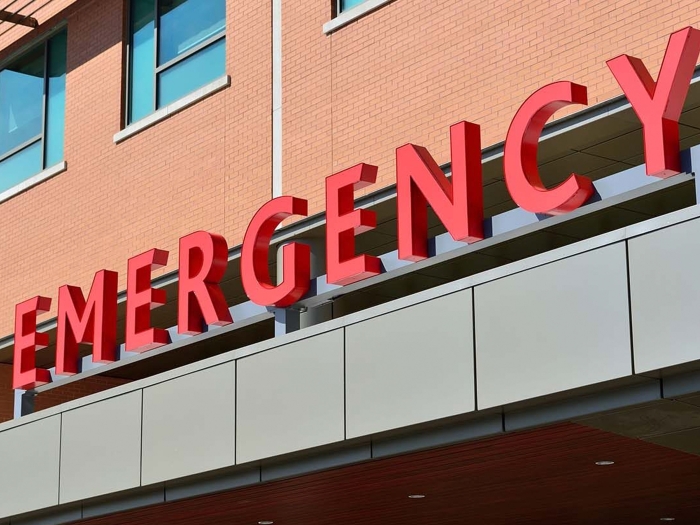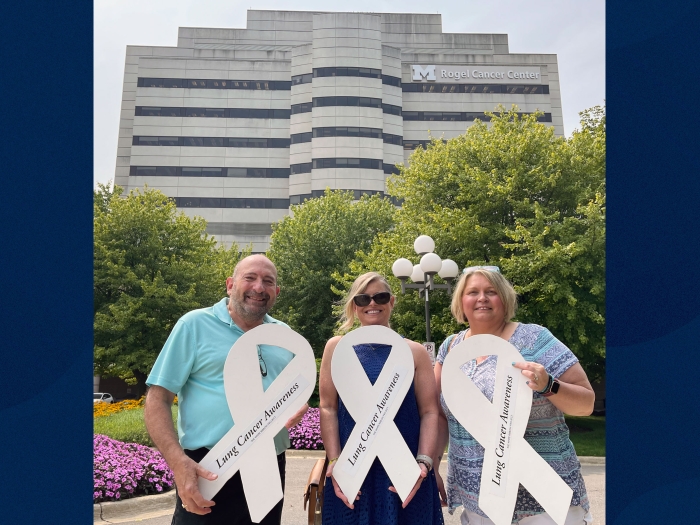A cancer surgeon advocates for better solutions to the ongoing supply chain issues regarding medications in the United States
5:00 AM
Author |

According to a recent report from the United Stated States Senate, drug shortages in the United States have increased by 30% in recent years and are at an all-time high.
Andrew Shuman, M.D., FACS, HEC-C, chief of the clinical ethics service in Michigan Medicine’s Center for Bioethics and Social Sciences, recently testified before the Homeland Security and Governmental Affairs Committee for the United States Senate regarding critical drug shortages.
“As a cancer surgeon, having to make life-changing decisions about how we care for our patients in the face of these shortages has become the norm,” said Shuman, who is a member of both the Rogel Cancer Center and Institute for Healthcare Policy and Innovation at Michigan Medicine. “Something needs to be done to combat the glaring supply chain issues that are impacting health care throughout our country.”
Here, Shuman, also an associate professor in the Department of Otolaryngology – Head and Neck Surgery at the University of Michigan Medical School, shares his experience with drug shortages and offers some solutions based upon his recent testimony.
Why did you become so invested in this cause?
Shuman: My personal experience with drug shortages began 15 years ago during a routine surgical case. At the time, there was a national propofol shortage, an anesthetic we need to perform surgery, that required anesthesiologists to improvise how to keep patients safe and comfortable during their procedures. And you do not need to be a cancer surgeon to realize how important it is that patients remain asleep during their operations.
Since that first experience, I have worked with a dedicated team at Michigan Medicine to the never-ending game of drug shortage whack-a-mole. Hundreds of drug shortages affect our country each year. Drug shortages have wide-ranging, and at times, devastating consequences for patients. We are fortunate at Michigan to have experts from pharmacists to nurses to doctors, along with ethicists, who work tirelessly to mitigate their impact on our patients.
How did these shortages snowball, per se?
Shuman: Almost two million Americans are diagnosed with cancer each year. We are lucky enough to live in a country where cutting-edge research has massively reduced cancer-related deaths. But cancer drug shortages represent a tragedy happening in slow motion.
For example, etoposide is a cancer drug that has been on the market for over 40 years and typically costs less than $50 per vial. It is given to patients for nearly a dozen different types of cancer. But in 2018 due to manufacturing delays, etoposide was on shortage at hospitals across the country.
This left us in an awful position. Which of our patients with cancer should receive this potentially lifesaving drug? How can we prioritize between American lives? Should our limited vials go to an older woman who was just diagnosed with lung cancer? Or to a young man who had already been successfully taking it for his testicular cancer? Or a baby with neuroblastoma, an aggressive cancer for which this drug is part of the standard of care, but others might work, too, despite limited studies?
Something needs to be done to combat the glaring supply chain issues that are impacting health care throughout our country.”
– Andrew Shuman, M.D., FACS, HEC-C
Our hospital, like other hospitals across the country, struggled to make these decisions based on the drug’s projected availability, which patients were already under our care and our best guess at how many new patients would be diagnosed in the coming weeks. We could not spread our limited supplies to all the patients that needed it.
As a doctor who has devoted my life to fighting cancer, it is hard to express how horrible it is to face this kind of tragedy.
The role of geopolitics and our reliance on foreign products is a major cause of such drug shortages. For example, last year, a General Electric plant in Shanghai stopped making the contrast used for many radiology tests, literally threatening half of the country’s supply, including that which VA hospitals relied upon. At that time, we had no idea how soon another shipment would come in or when the factory would reopen, leading to decisions such as whether to prioritize scans for cancer, or for heart disease.
Veterans, and all Americans, deserve better.
How did the COVID-19 pandemic impact drug shortages?
Shuman: I would be remiss not to mention how the pandemic has exacerbated drug shortages in our country. It is important to note that COVID-19 did not create this problem, but simply made it worse.
My colleagues and I have worked tirelessly over the past three years to take care of patients with COVID-19. We have also learned quite a bit about how to conserve and ration health resources, and doing so equitably by making sure that that diverse patient communities have access to the best care possible. We know that supporting clinicians in making tough decisions with clear objective criteria can help limit subjectivity and variance between doctors to ensure decisions are consistent and fair.
But all hospitals do not have access to the same resources. Michigan Medicine has multiple pharmacists focusing on predicting, mitigating and avoiding drug shortages. But some smaller hospitals aren’t so lucky.
Patients should not have better access to scarce drugs than other people across the state purely based on which hospital they use, particularly because access is driven by differences in demographics and health disparities.
What can be done about the problem?
Shuman: Our team has studied how institutions across regions and states can better communicate about ongoing drug shortages, such as prioritization approaches, patient volumes, and existing supplies to predict drug shortages, and in so doing, better prepare for them.
One key role for lawmakers is to improve drug shortage monitoring and information sharing nation-wide and develop public-private partnerships to incentivize production of critical drugs like sterile injectable generics. We are working with Congress on potential bipartisan legislative solutions.
And we can all agree that sick Americans deserve access to life-saving medications.

Explore a variety of health care news & stories by visiting the Health Lab home page for more articles.

Department of Communication at Michigan Medicine
Want top health & research news weekly? Sign up for Health Lab’s newsletters today!





